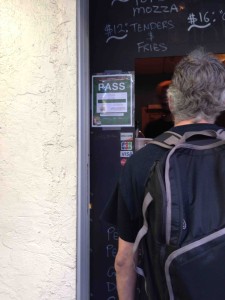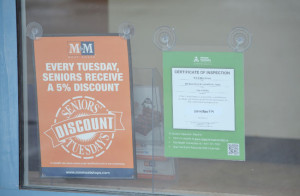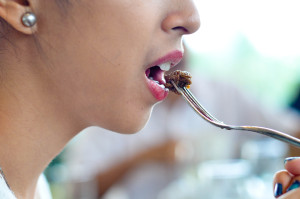Molly Rosbach of theYakima Herald-Republic writes: Three people sickened, one dead, and many questions still unanswered.
 On the evening of Jan. 16 at the end of the work day, the state Department of Health issued a food-recall alert, warning that anyone who had recently purchased Queseria Bendita cheese should throw it out because of a listeria outbreak. The cheesemaker had been linked to three cases of listeriosis after the
On the evening of Jan. 16 at the end of the work day, the state Department of Health issued a food-recall alert, warning that anyone who had recently purchased Queseria Bendita cheese should throw it out because of a listeria outbreak. The cheesemaker had been linked to three cases of listeriosis after the
Queseria Bendita was linked to a similar outbreak five years ago, when five people were hospitalized for listeriosis in Washington and Oregon. No one died, but two pregnant women in Oregon were infected, causing premature births, Oregon health officials said at the time.
Since the most recent recall, retailers have pulled Queseria Bendita products. While the cheese shop owners maintain that investigators have not found listeria in their cheese, but only in the Third Street facility — implying their products are safe — experts say the evidence is clear.
“One of the things I’m hearing — ‘Because they didn’t find it in the cheese, it’s not from these guys’ — no, it’s not true,” said Dr. Scott Lindquist, the state communicable disease epidemiologist. “This is not a common strain, and to have three patients in the state have it, and to have it in this Queseria Bendita, is not a coincidence.”
The case of Queseria Bendita illustrates how painstakingly difficult it can be to track down a foodborne illness and efficiently notify the consuming public of the danger: Roughly six weeks passed between the reported illnesses and the recall.
And despite new food-safety laws and multiple regulatory agencies to enforce them, inspections of high-risk food manufacturers are intermittent at best. When they do take place, the inspections may be superficial and unable to detect a culprit like listeria, which is good at hiding and not easy to eradicate.
While the family-owned company is vowing to clean up and come back, trust could be hard to regain.
Several different agencies share responsibility for food safety. The Yakima Health District, for example, periodically checks Queseria Bendita’s refrigerators — not the cheese or cheese-making equipment — to make sure already-packaged products are cold enough.
The state Health Department, the first to hear about the three infected patients from medical providers, investigated the illnesses and notified the Food and Drug Administration, which took over the investigation.
The state Department of Agriculture licenses Queseria Bendita, along with 3,000 other food processors in the state, and tries to have inspectors on-site at least once a year, though there is no law requiring a certain number of visits.
Agriculture Department officials inspected the cheese shop most recently in June 2014 and November 2013, and it passed both times. Those inspections, however, are limited: Officials check that employees follow general sanitation practices and that the floors and equipment look clean.
The Agriculture Department also conducts random product sampling statewide, rotating through different food products in different weeks. Thus it may have tested Queseria Bendita cheeses in recent years, but it has no record of environmental sampling at the Yakima facility since 2010, said Kirk Robinson, assistant director of food safety and consumer services.
“Sometimes, even doing product sampling, you’re not always going to catch it at that time,” Robinson said. “You try to do the best you can.”
The FDA has jurisdiction when a company’s distribution crosses state lines, so it also inspects the food-processing side of the cheese shop. FDA guidelines say high-risk facilities — those with known safety risks and a history of foodborne illness — must be inspected at least once within the first five years of the Food Safety Modernization Act, passed by Congress in 2010, and then at least once every three years going forward. FDA did not have mandatory recall authority until passage of the act.
Records show the last time the FDA inspected Queseria Bendita was January 2011, which was within the agency’s recommended guidelines.
“They might have damaged their reputation enough that they’ll never sell again,” he said.
Based on his experience with companies of all sizes, Bill Marler, a prominent Seattle attorney who has handled foodborne illness cases for more than two decades, said he wouldn’t call Queseria Bendita a bad actor, as listeria is so difficult to control.
But, “Companies that produce food have a moral and legal responsibility to produce food that doesn’t sicken and kill its customers,” he said. “So they’re responsible for what they sell.”









